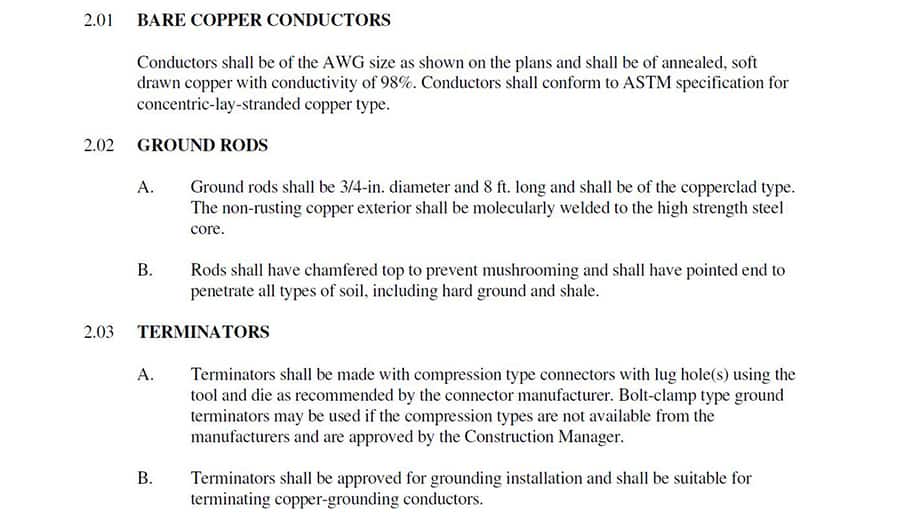There are 15 non-technical things that every engineer should know if they want to reach their full potential.
I know, I know, a lot of people think engineers are just math wizards who live in isolation behind their desks. But that’s so far from the truth. Don’t believe every Hollywood engineer stereotype you hear!
To succeed as an engineer, there’s more to it than just being a whiz with numbers. Especially in this day and age, when everything is available on the internet, memorizing equations just doesn’t cut it anymore. That’s why I want to share with you these 15 non-technical things that’ll help you maximize your engineering career.
#1 Build strong relationships 
You know what they say – relationships are everything in the business world! And they’re not just about those casual “hey, what’s up?” encounters with your colleagues.
To truly thrive, you’ve gotta invest time and energy into understanding the people around you on a more meaningful level. Step out of your comfort zone, make connections beyond your usual circles, and watch the magic happen.
But let’s be real – relationships can be messy. There’ll be moments when people disappoint you or treat you unfairly. It’s tempting to sever ties and move on, but hold your horses!
Before you go torching bridges, take a step back and assess the situation. Can you work through the issue and move past it? Trust me, you never know when that person might reappear in your life, and it’d be a shame to let a petty disagreement block potential opportunities or friendships. So, choose your relationship battles wisely.
#2 Never shy away from asking questions
Asking questions doesn’t make you look stupid. Quite the opposite – it shows you’re engaged and eager to learn. After all, no one can know everything; today’s subjects are vast and ever-evolving.
Plus, who has the time to constantly research everything they don’t know? Many niche areas demand years of expertise to master, and not all info can be found with a quick Google search.
By asking questions, you fast-track your learning and reduce mistakes born of ignorance.
But remember, pretending to know it all can backfire. You’ll annoy folks when they discover you’re not as knowledgeable as you claimed. And listen, don’t ask technical questions you should know the answers to in front of clients or potential partners. Jot them down and research later, so you don’t risk damaging your credibility.
#3 Embrace the learning grind
Get ready to dive into the challenging world of mastering tough subjects, like deciphering theorems and intricate designs.
With technology advancing at breakneck speed, you’ve gotta stay on that learning treadmill. Formal education? Just the tip of the iceberg. I’ll let you in on a secret – I’ve learned way more on my own than I ever did in school. And let’s be honest, engineering education could use some sprucing up.
The best part? When you’re truly passionate about a topic, that knowledge sticks like glue. You won’t forget what you’ve learned!
#4 Work in a passion-filled position
If you’re in engineering for the cash and the glory, let me break it to you: you’re in it for the wrong reasons. Chances are, you’ll either fizzle out or churn out mediocre work.
Now, I’m not saying you can’t score big bucks or prestige in engineering. But the grind is too intense to do it for the wrong reasons. You’ll struggle with the relentless challenges and the daily bullshit.
Plus, being an engineer isn’t as glamorous as it used to be. So, pick this career because you’re genuinely curious and excited to tackle new obstacles. Who knows? You might even invent something, and hit the jackpot!
#5 Talk less, listen more
Don’t be that person who always jumps into the conversation just to hear their own voice – especially if you’re clueless about the topic at hand. Instead, lend your ears and absorb as much info as possible.
Trust me, it gets old real fast when someone constantly chimes in without adding value. People see right through it, and it just clogs up the conversation.
Worse still, if you’re always talking, crucial info might slip past you. Others will assume you already know the answer because of your know-it-all vibe. So, sit back and listen – you’ll thank yourself later!
#6 Master the art of engineering solutions
News flash: every problem has multiple solutions. But some are better than others – yup, I’m talking about overengineering.
And let’s face it, there are tons of bad solutions out there. So, get to know the difference between the good and the bad. The best solutions are:
- Simple
- Few parts
- Within budget
- Safe
#7 Show empathy in business-client relationships
Remember that one online order that arrived two weeks late with missing parts? Oh, and customer support was an unhelpful robot? Headbanging frustrating, right?
Well, clients feel the same when you:
- Ignore messages
- Deliver projects late
- Submit half-assed work
So, remember that clients are human too. Treat them the way you’d want to be treated. That means prompt responses and delivering on your promises.
#8 Hone your writing skills

Writing is crucial for engineers. Surprising, huh? Engineers don’t just do complex math all day!
At some point, you’ll need to communicate your thoughts. Think about:
- Procurement and construction specs
- Emails to various stakeholders
- Design drawing notes
- Technical and project proposal reports
Face it, you can’t escape writing as an engineer. The higher you climb, the more you’ll write. Check out my following articles for engineering writing tips:
- Master engineering email writing using these 14 tips
- 12 engineering writing tips you need to know
- Engineering writing style guide – 6 things to know
#9 Rock public speaking
Most engineering gigs require speaking, especially as you move up the ranks. Master speaking confidently to crowds, and one-on-one chats become a breeze.
As an engineer, you’ll find yourself:
- Presenting your product or service
- Discussing project details
- Debating problem solutions
- Explaining heated situations
Don’t forget to check out my article on improving public speaking for engineers!
#10 Double- and triple-check designs and calculations
Never assume your design or calculations are right on the first try. All engineers make mistakes – no exceptions!
Use proven engineering review techniques to check your work. A single mistake can cost millions or even lives. Check out my following articles on how I review my design drawings and calculations:
- How to check engineering drawings? 8 things to know
- 5-step process to checking engineering calculations
And if you’re unsure, ask for help. Better safe than sorry!
#11 Confidence, not arrogance
Becoming an engineer doesn’t give you a free pass to act like an asshole. Sure, you’re smart, but guess what? So are hundreds of millions of others out there.
Go read my “how to humble yourself by looking at stars” article – it’ll give you some perspective on where you stand in this vast universe. Trust me, nobody wants to work with an insufferable know-it-all. Steer clear of:
- Disregarding other people’s opinions
- Deliberately avoiding eye contact
- Arriving late
- Using condescending language
- Always assuming you’re right
- Blaming others for your mistakes and shortcomings
You definitely need confidence, but remember, there’s a fine line between confidence and arrogance. Confidence empowers you to stand by your engineering solutions without being obnoxious, even when 10 other engineers are giving you the evil eye and saying “your design is wrong!”
Keep in mind, confidence has your back because you’ve triple-checked your calculations and successfully tackled similar, if not more complex, projects in the past. So, siding with those 10 engineers could actually put people at risk.
That’s why confidence is so valued in high-level engineering positions – you’re expected to make critical decisions while people hang on to your every word.
#12 Embrace interdisciplinary learning

Don’t bury yourself in your own engineering specialty. The best engineers I’ve met are not only experts in their fields but also have a broad understanding of other engineering disciplines.
Imagine working on a rocket at NASA or SpaceX. Such intricate projects require almost every type of engineer you can think of. Just take a look at SpaceX’s Raptor engine.
By appreciating the work of other engineers, your own work will naturally improve. All engineering disciplines interlock like puzzle pieces, and the more knowledge you have, the better you can fit those pieces together.
#13 Boost your financial savvy
Unless you’re part of a huge corporation, chances are you’ll be dealing with project finances directly. Having a basic grasp of financial matters can give you an edge in your work.
For instance, with every project, you’ll need to tackle this crucial question:
How to stay within your client’s agreed-upon overall budget?
Your budget shapes how you approach your design, so it’s critical to have a handle on it.
#14 Master time management
As the brains behind a project, you’ll have a lot on your plate. Time management is essential to tackle that seemingly never-ending to-do list.
First things first – make a to-do list! I recommend creating daily, weekly, and monthly to-do lists to stay on track and not lose sight of any tasks.
Equally important, learn to focus. Eliminate distractions when you’re working. For example, a quick search on Reddit can quickly turn into hours lost if you’re not careful. One moment you’re checking a question, the next thing you know, you’re tumbling down endless rabbit holes, and your entire schedule is thrown off.
To boost your focus and productivity, learn how to work like a machine.
#15 Get a grip on physical and digital file organization
Let me tell you, honing your organization skills is your ticket to success as an engineer. Trust me, you’ll want to get a handle on organizing both your physical and digital files.
You know what really grinds my gears? Having to search for the same thing twice. It’s such a colossal waste of time! But hey, you can dodge that bullet if you stay on top of things and keep your work documented.
Here’s my secret sauce: file away documents the moment they land in your lap. And when you create new stuff, save it right where it belongs, straight away. Don’t just dump a document on your desktop and promise yourself you’ll move it later. ‘Cause let’s face it, with a gazillion new documents flooding your inbox, later might never happen.
“What every engineer should know?” wrap up
In today’s cutthroat world, being an engineer takes more than just technical prowess. You’ve gotta be like a Swiss Army Knife—versatile and indispensable—otherwise, you’ll end up being just another replaceable cog in the machine.
So, why not give these 15 tips a whirl to become a better, more successful engineer?
What do you think every engineer should master to have a successful career? Which non-technical skill do you find is the most important for engineers?
